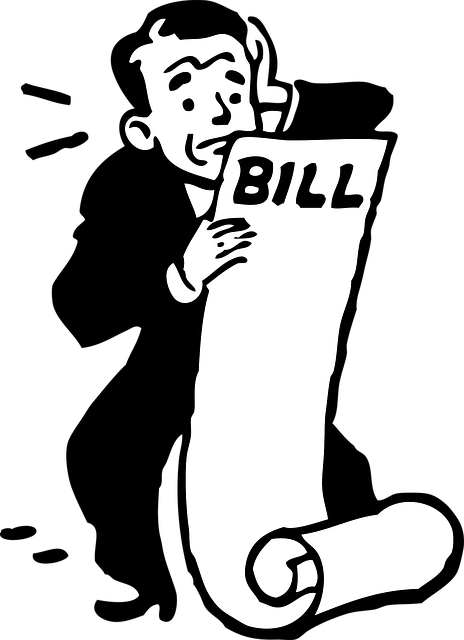Tenant debt, often caused by financial strain and poor budgeting, can lead to late fees, eviction, and damaged credit. To alleviate this, individuals have various tenant debt consolidation options, such as negotiating payment plans with landlords, exploring government assistance, or seeking professional advice. Effective communication and building strong relationships between tenants and property managers can help manage debt through open dialogue, budgeting tips, structured repayment plans, extended lease terms, and reasonable interest rate loans, fostering long-term financial stability.
In today’s dynamic rental market, managing tenant debt effectively is crucial for landlords and property managers. This article explores comprehensive strategies to tackle and reduce tenant debt, focusing on key areas such as understanding its root causes, implementing successful communication tactics, and delving into tenant debt consolidation options like tailored repayment plans. By fostering positive relationships, professionals can find long-term solutions, ensuring a healthier financial environment for all parties involved.
- Understanding Tenant Debt: Causes and Impact
- Communication: A Key Strategy for Recovery
- Consolidation Options: Repayment Plans Explored
- Building Relationships: Long-Term Solutions
Understanding Tenant Debt: Causes and Impact

Tenant debt, often a byproduct of financial strain or poor budgeting, can accumulate over time, affecting tenants’ ability to meet their rental obligations. Understanding the causes and impact is crucial for implementing effective strategies to manage and reduce it. Common triggers include unexpected life events, loss of employment, or excessive rent increases surpassing income growth. The consequences are far-reaching: late fees, potential eviction, and damaged credit scores.
Tenant debt consolidation options emerge as a strategic solution, especially for those grappling with bad credit. Innovative approaches, such as negotiating with landlords for payment plans, exploring government assistance programs, or seeking professional advice on tenant debt settlement, can offer much-needed relief. By evaluating various options, tenants can find tailored solutions that address the root causes of their financial distress and pave the way for a more secure future.
Communication: A Key Strategy for Recovery

Effective communication is a powerful tool when it comes to managing and reducing tenant debt. It’s a key strategy that can help tenants regain financial control. Landlords should encourage open dialogue, providing clear explanations of the situation and the available tenant debt consolidation options. This approach enables tenants to understand their obligations better and make informed decisions about their repayment plans.
By offering budgeting tips for tenant debt relief, landlords can assist their tenants in creating realistic budgets that cater to their financial capabilities. This proactive communication reduces the risk of mounting debt and helps establish a path to recovery. Moreover, when considering bad credit loan consolidation or comparing tenant debt consolidation loans, it’s essential to ensure that all terms and conditions are transparent and understood by both parties.
Consolidation Options: Repayment Plans Explored

Tenant debt consolidation options offer a structured approach to managing and reducing financial obligations. One popular strategy is repayment plans, which involve creating a customized plan with a manageable monthly payment schedule. Landlords or property managers can collaborate with tenants to set up these plans, considering individual circumstances and income levels. This method provides tenants with a clear path towards debt free living for tenants while ensuring timely rent payments.
Exploring these consolidation options empowers both parties to navigate challenging financial situations effectively. Debt management strategies for tenants can include extending the lease term to allow for gradual repayment or negotiating reduced rates during specific periods. Local non-profit tenant debt aid organizations also play a crucial role in providing resources and guidance, assisting individuals in finding suitable solutions to their unique debt challenges.
Building Relationships: Long-Term Solutions

Building strong relationships with tenants is a key strategy for managing and reducing tenant debt. It’s about fostering open communication, understanding their unique financial situations, and offering tailored solutions. When tenants feel supported and trusted, they’re more likely to be transparent about their challenges, enabling property managers or landlords to provide appropriate assistance. This could involve exploring tenant debt consolidation options like loans with reasonable interest rates, which can help tenants manage their debts effectively while maintaining a positive living environment.
By building relationships, you’re not just addressing the immediate debt issue but also creating long-term solutions. This may include comparing various tenant debt solutions available, such as debt consolidation loans for bad credit, and referring tenants to local non-profit organizations specializing in tenant debt aid. Such collaborative efforts can lead to improved financial literacy among tenants, helping them avoid future debt traps and ensuring a more stable living situation for all parties involved.
Managing tenant debt effectively requires a multifaceted approach. By understanding the root causes, implementing open communication channels, exploring repayment plans through tenant debt consolidation options, and fostering positive relationships, landlords can mitigate financial strain and build a more stable rental environment. These strategies not only help in debt recovery but also foster long-term trust, ensuring a thriving rental community.
